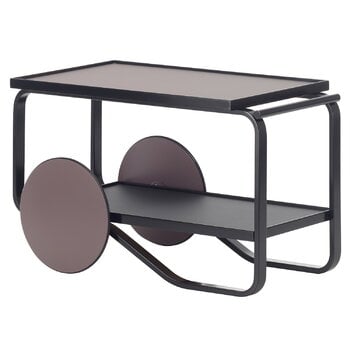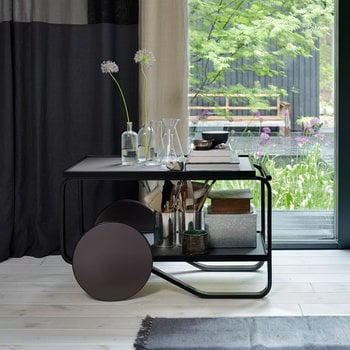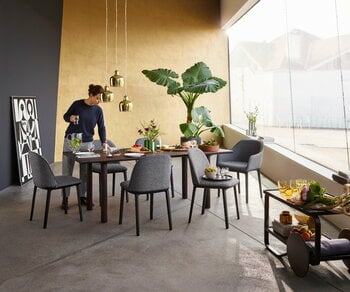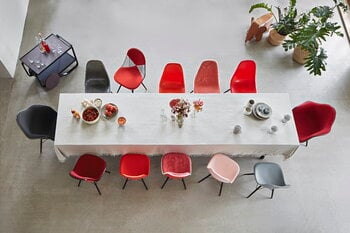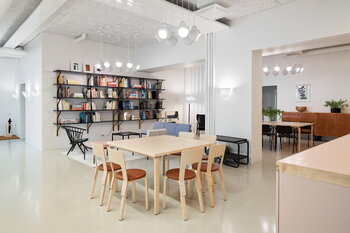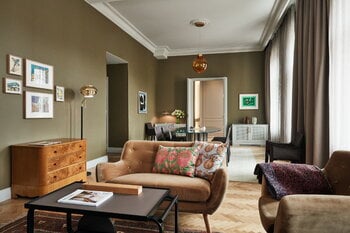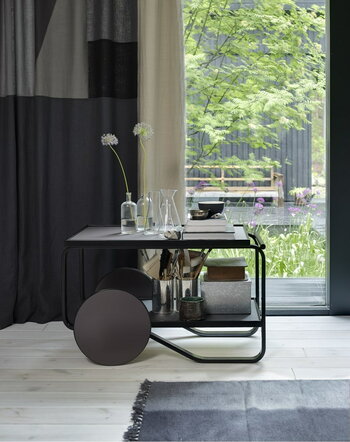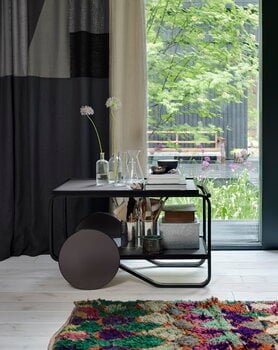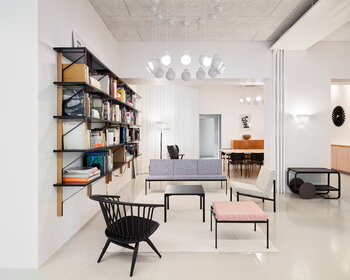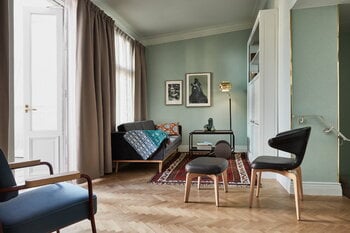Artek's tea trolley 901, designed by Alvar Aalto in 1936, is the simplest and most graceful tea trolley among the ones created by Aalto. The expression of the tea trolley 901 has references to British tea culture as well as Japanese woodwork and architecture.
After delving into Artek’s archives, Dutch designer and colour specialist Hella Jongerius created two new colour combinations for the trolley: dark and light. The dark trolley is dressed in two stylish hues: the lacquered birch frame and the bottom linoleum tray are black, and the wheels and the top linoleum tray peat. The tea trolley 901 is an excellent side table for any home and perfect for serving tea, coffee and other refreshments.
